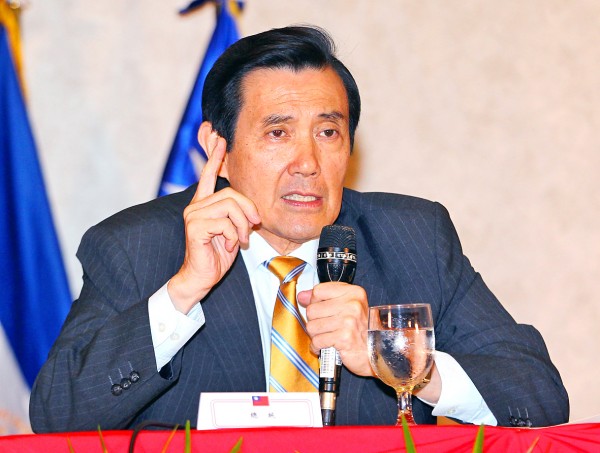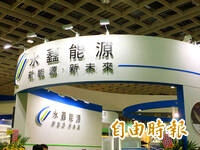《TAIPEI TIMES 焦點》President Ma cautious on Japan’s self-defense shift
US INVOLVEMENT: Ma said that the Taiwan Strait poses more serious concerns than the East China Sea, but that cross-strait rapprochement should ease the US’ worries
By Shih Hsiu-chuan / Staff reporter
President Ma Ying-jeou (馬英九) yesterday emphasized the importance of “peaceful resolution” of a conflict when he commented on the recent landmark change in Japanese Prime Minister Shinzo Abe’s security policy that ends Japan’s long-standing ban on exercising collective self-defense.
In contrast to the immediate support the US has expressed for the decision, the Ma administration has responded to the issue with caution, saying that the government is “closely watching” Japan’s new defense policy.
Given the tense situation in the East China Sea due to territorial rows, it is everyone’s concern that Japan and China could go to war, and if that happens it would certainly implicate the US, Ma said when asked to comment on the issue at a press conference in El Salvador, which was broadcast live from the Presidential Office.
Saying that Japan’s new defense policy has drawn disagreement among people in Japan, Ma highlighted the importance of the “principle of peaceful settlement of international disputes” — as stipulated in the UN charter.
“If the principle is not upheld, some dreadful events could be inevitable,” Ma said.
Ma was asked what impact US support for Japan’s new defense policy would bring to cross-strait relations.
The Taiwan Strait is a far more serious flashpoint than the East China Sea, but the US can now rest assured as cross-strait rapprochement continues, Ma said.
The US would surely get involved in the event of a cross-strait conflict, but it would be a very hard problem to resolve even if the US is part of the situation, Ma said.
Ma said he did not characterize the US’ policy of rebalancing toward Asia as a new strategy to contain China, as many people have likened it to the US’ containment policy toward China laid out by former US ambassador to the Soviet Union George Kennan in the 1950s.
The situation today differs from what it was in the 1950s in two respects: first, Asian countries engage with China economically, while relying on the US for security; second, with China rising and Japan having a mind of its own, the US does not have strong advantages in the region as it had back then, Ma said.
Given the situation, Taiwan can play a positive role as it has been doing by pursuing a cross-strait structure of permanent peace, he said.
The agreement Taiwan signed with Japan last year to end controversies over fishing in waters surrounding the disputed Diaoyutai Islands (釣魚台) was a testimony of how the nation has played peacemaker, Ma added.
Meanwhile, Ma reiterated his long-stated wish to meet with Chinese President Xi Jinping (習近平), with a focus on creating a path for both sides to maintain permanent peace and prosperity.
In the normal course of events, the significant changes in cross-strait relations over the years would entail “a meeting between leaders on both sides of the Taiwan Strait,” he said.
Ma said that the suggestion offered by China’s Association for Relations Across the Taiwan Straits Vice Chairman Sun Yafu (孫亞夫) that Taiwan invite Xi for a visit was never brought up for discussion in cross-strait talks.
He said he views an APEC forum as the best venue for a meeting.
新聞來源:TAIPEI TIMES



















